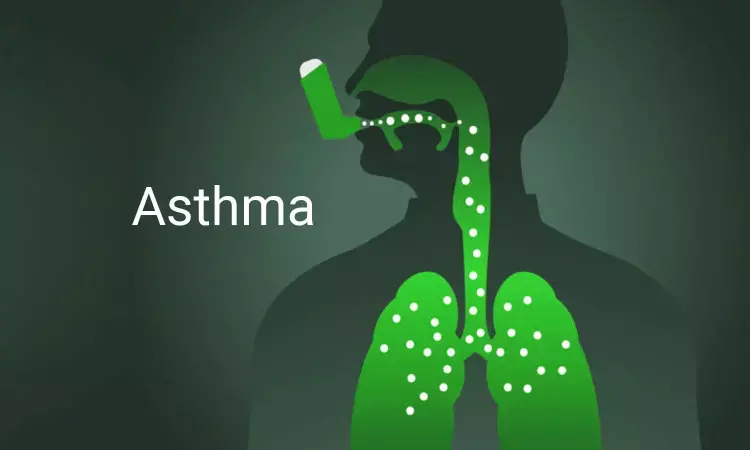- Home
- Medical news & Guidelines
- Anesthesiology
- Cardiology and CTVS
- Critical Care
- Dentistry
- Dermatology
- Diabetes and Endocrinology
- ENT
- Gastroenterology
- Medicine
- Nephrology
- Neurology
- Obstretics-Gynaecology
- Oncology
- Ophthalmology
- Orthopaedics
- Pediatrics-Neonatology
- Psychiatry
- Pulmonology
- Radiology
- Surgery
- Urology
- Laboratory Medicine
- Diet
- Nursing
- Paramedical
- Physiotherapy
- Health news
- Fact Check
- Bone Health Fact Check
- Brain Health Fact Check
- Cancer Related Fact Check
- Child Care Fact Check
- Dental and oral health fact check
- Diabetes and metabolic health fact check
- Diet and Nutrition Fact Check
- Eye and ENT Care Fact Check
- Fitness fact check
- Gut health fact check
- Heart health fact check
- Kidney health fact check
- Medical education fact check
- Men's health fact check
- Respiratory fact check
- Skin and hair care fact check
- Vaccine and Immunization fact check
- Women's health fact check
- AYUSH
- State News
- Andaman and Nicobar Islands
- Andhra Pradesh
- Arunachal Pradesh
- Assam
- Bihar
- Chandigarh
- Chattisgarh
- Dadra and Nagar Haveli
- Daman and Diu
- Delhi
- Goa
- Gujarat
- Haryana
- Himachal Pradesh
- Jammu & Kashmir
- Jharkhand
- Karnataka
- Kerala
- Ladakh
- Lakshadweep
- Madhya Pradesh
- Maharashtra
- Manipur
- Meghalaya
- Mizoram
- Nagaland
- Odisha
- Puducherry
- Punjab
- Rajasthan
- Sikkim
- Tamil Nadu
- Telangana
- Tripura
- Uttar Pradesh
- Uttrakhand
- West Bengal
- Medical Education
- Industry
Hormonal contraceptives minimise onset of Asthma in women, study finds

A newer study found that there was a reduced risk of new-onset asthma in women when using Hormonal contraceptives. The recent study was published in the "Journal of Allergy and Clinical Immunology", 2020.
Studies have found that there is a sex difference in the incidence and prevalence of asthma. There is growing evidence to show that asthma pathogenesis is regulated by sex hormones. Despite well-described sex differences in asthma incidence, there remains uncertainty about the role of female sex hormones in the development of asthma. Bright Nwaru et al conducted a study to investigate if hormonal contraceptive use and duration of use were associated with new-onset asthma in reproductive-age women.
Also Read: Also Read:BMJ study links Air pollution to higher risk of Asthma in young children
The researchers used the Optimum Patient Care Research Database, a UK national primary care database for the study. The study was conducted from January 1, 2000, to December 31, 2016. They constructed an open cohort of 16- to 45-year-old women (N = 564,896) and followed for up to 17 years. Multilevel Cox regression models were used to analyze the data.
The findings of the study were as follows:
• At baseline, 26% of women were using any hormonal contraceptives.
• During follow-up (3,597,146 person-years), 25,288 women developed asthma, an incidence rate of 7.0 per 1000 person-years.
• Compared with non use, previous use of any hormonal contraceptives, combined, and progestogen-only therapy was associated with reduced risk of new-onset asthma.
• Longer duration of use was associated with a lower risk of asthma onset than nonuse.
Thus, the authors concluded that hormonal contraceptive use was associated with reduced risk of new-onset asthma in women of reproductive age. They further added that mechanistic investigations to uncover the biological processes for these observations are required. They also suggested Clinical trials to further investigate the safety and efficacy of hormonal contraceptives for primary prevention of asthma.
For further reading, click the following link: https://doi.org/10.1016/j.jaci.2020.02.027
BDS, MDS
Dr.Niharika Harsha B (BDS,MDS) completed her BDS from Govt Dental College, Hyderabad and MDS from Dr.NTR University of health sciences(Now Kaloji Rao University). She has 4 years of private dental practice and worked for 2 years as Consultant Oral Radiologist at a Dental Imaging Centre in Hyderabad. She worked as Research Assistant and scientific writer in the development of Oral Anti cancer screening device with her seniors. She has a deep intriguing wish in writing highly engaging, captivating and informative medical content for a wider audience. She can be contacted at editorial@medicaldialogues.in.
Dr Kamal Kant Kohli-MBBS, DTCD- a chest specialist with more than 30 years of practice and a flair for writing clinical articles, Dr Kamal Kant Kohli joined Medical Dialogues as a Chief Editor of Medical News. Besides writing articles, as an editor, he proofreads and verifies all the medical content published on Medical Dialogues including those coming from journals, studies,medical conferences,guidelines etc. Email: drkohli@medicaldialogues.in. Contact no. 011-43720751


